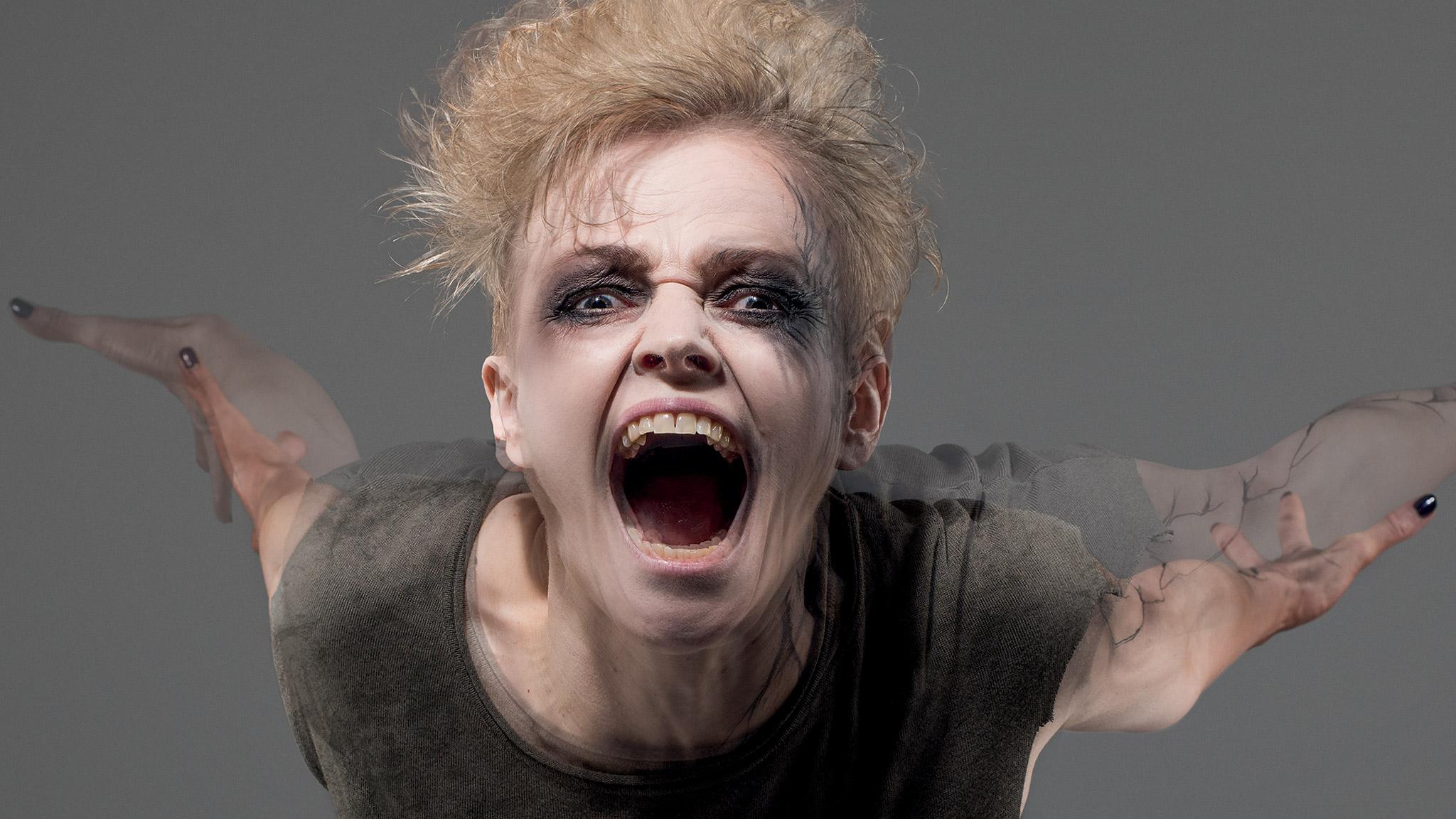Gerhard Richter and Arvo Part unite art and music in Manchester
- Published
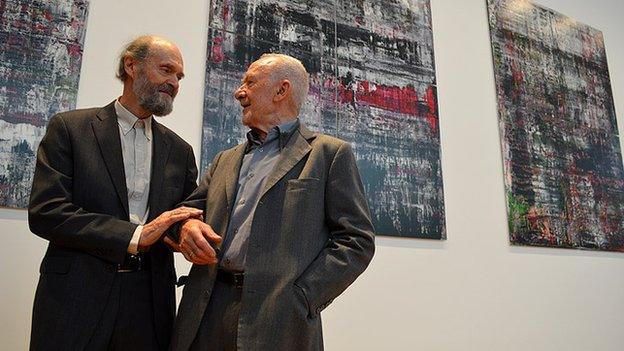
Arvo Part (left) and Gerhard Richter met through the Manchester International Festival
Painter Gerhard Richter and composer Arvo Part, two titans of European culture, have joined forces to bring art and music together for a special exhibition in Manchester.
Richter, widely regarded as the world's greatest living artist, has unveiled eight paintings dedicated to Part.
And Part has composed a choral work to be performed alongside the paintings.
The pair launched the partnership at the Whitworth gallery, which was named the UK's museum of the year last week.
They were introduced and encouraged to work together by Alex Poots, artistic director of the Manchester International Festival.
Richter is showing eight paintings from two new series: Birkenau, based on photographs of the Auschwitz-Birkenau concentration camp in World War Two; and Doppelgrau (Double Grey), which have different shades of grey on glass.
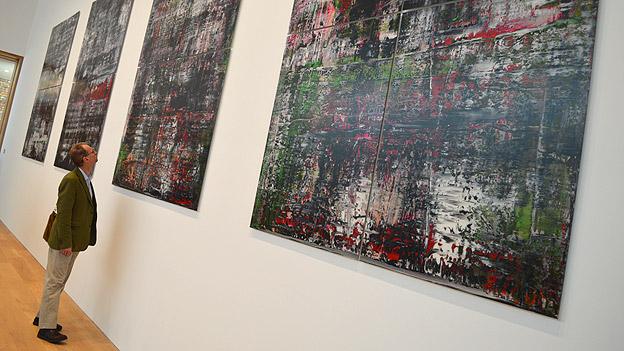
Richter's Birkenau paintings were completed earlier this year
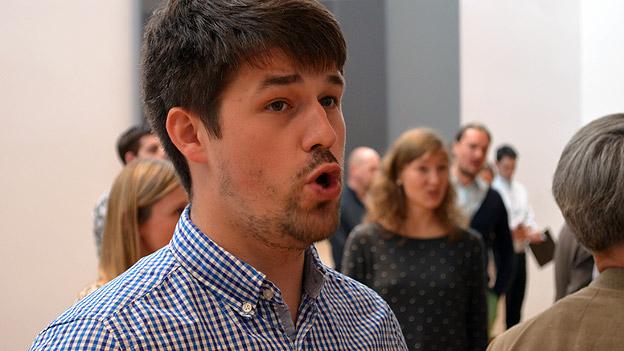
Members of Estonian choir Vox Clamantis mingle with gallery visitors to perform
Earlier this year, one of the 83-year-old German's paintings sold for more than £30m - a record for a living artist. He had a major retrospective at the Tate Modern in London in 2011.
In response to Richter's art, the 79-year-old Estonian composer wrote a haunting 95-second choral piece titled Drei Hirtenkinder aus Fatima.
"It is very exciting for me and an honour that our works will converge," Part said. "As different as they may seem, they must be somehow related."
The work will be sung in the gallery by the 14-member Estonian choir Vox Clamantis until Saturday, and then by community choirs from Manchester until 19 July.
'Deeply touched'
Curator Hans-Ulrich Obrist, who helped arrange the meeting between Richter and Part, said they had "a great interest in each other's work".
He said: "We found out that they not only like each other's work a lot but they also got along really well and there are many biographical parallels.
"They were born more or less the same time, they both lived in the east [of Europe], they both experienced the Second World War and so on."
Part initially said he was not intending to write any new music at that time.
"And then all of a sudden like a miracle, not only did Gerhard dedicate his work to Arvo and create this amazing new work, but also Arvo broke the news that he had written music, which is this piece," Obrist said.
"The key idea was to bring these two aspects together."
- Published1 July 2015
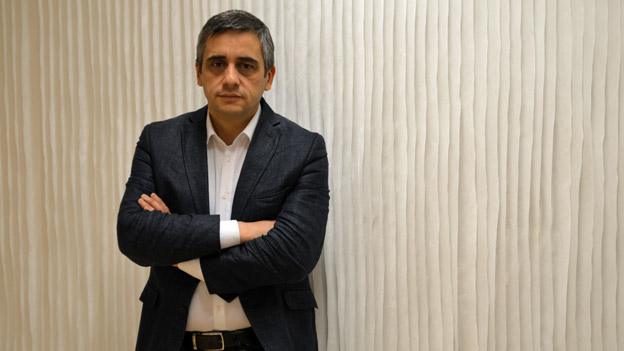
- Published15 May 2013
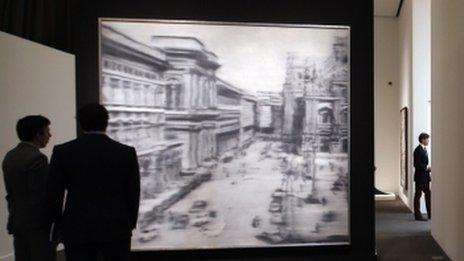
- Published5 March 2015
